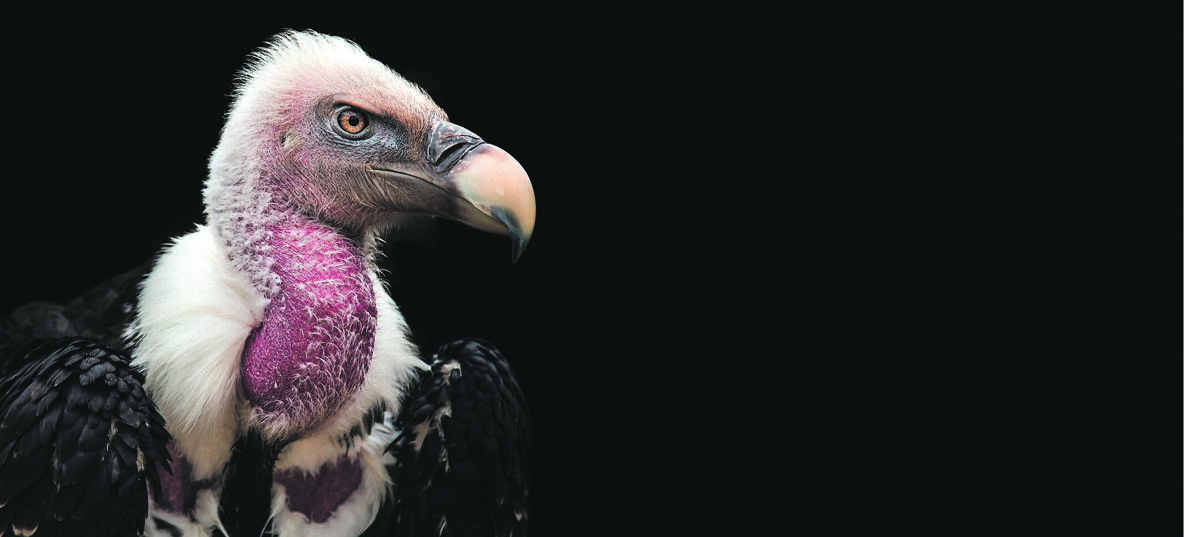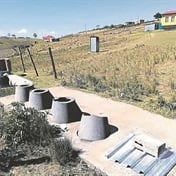
More than 500 critically endangered vultures have died of alleged poisoning in Botswana, according to local officials.
A devastating total of 537 vultures and two tawny eagles were found dead in northeast Botswana, although it is unclear when the incident occurred, according to the BBC.
Botswana’s government reported that its department of wildlife and national parks had recently discovered the birds’ carcasses.
The breakdown of species included 10 Cape vultures, 14 lappet-faced vultures, 468 white-backed vultures, 17 white-headed vultures and 28 hooded vultures.
It is suspected that poachers who killed three elephants had laced their carcasses with poison.
“This poisoning has killed various numbers of vultures from five different species, including those that are critically endangered,” said a representative from BirdLife Botswana.
She said that this was a specific case of poisoning, which occurs when the poachers deliberately target vultures to stop them from circling above the animals – because doing so alerts the authorities that animals have been killed in that area.
“Basically, the three elephants’ carcasses were laced with poison – a powder-like substance that was sprinkled all over.”
BirdLife Botswana receives numerous vulture poisoning reports, most of which are caused by poachers intent on eliminating vultures in the areas in which they poach.
While birds of prey are usually first on the scene, the effects of poisoned carcasses extends to the other predators in the area, resulting in more dead animals.
This disastrous situation highlights the growing poaching problem on the continent.
Conservation organisation Elephants Without Borders estimates that at least 385 elephants were poached countrywide from 2017 to early October last year.
Botswana is home to about 130 000 elephants – a third of the total number in Africa – making it an obvious target for poachers.
Conservationists have called the vulture deaths one of the largest documented killings of the threatened species.
Kerri Wolter, the chief executive and founder of conservation charity VulPro, said the species cannot withstand these losses.
“It is impossible to recover the disappearance of these individuals and breeding pairs in our lifetime. It is breeding season and many of the dead birds are adults, which means that we have lost the birds and their eggs/chicks,” she said.
Botswana’s government recently lifted a ban that protected its elephants from being hunted.
This was announced after a five-year suspension, according to a statement issued last month by the department of environment, natural resource conservation and tourism.
In a letter allegedly written to reporters, the department referred to elephants as predators and said their numbers appear to have increased.
In the letter, issues were raised regarding elephants causing harm to livestock and to the livelihoods of Botswana’s people, increasing conflict between humans and elephants, according to news organisation NPR.
The hunting ban was imposed by former president Ian Khama in 2014 to protect elephants from trophy and ivory hunters.
Hunting any game animal partially protected in Botswana without a licence was deemed an offence punishable by a penalty amounting to 50 000 Botswana pula (R67 360). A 10-year prison term was also applicable.
This policy was scrapped under the current administration.
“This poisoning has killed various numbers of vultures from five different species including those that are critically endangered,” said a representative from BirdLife Botswana.
She said this was a case of centennial poisoning, which is when the poachers deliberately target vultures to stop them from circling above the animals. This alerts the authorities that animals have been killed in that area.
“Basically the three elephant’s carcasses were laced with poison. It’s a powder like substance that is sprinkled all over.”
BirdLife Botswana receives a lot of vulture poisoning reports, most of which are caused by poachers who deliberately aim to eliminate vultures in the areas that they poach in.
While birds of prey are usually first to the scene, the effects of poisoned carcasses extends to the other predators in the area resulting in more dead animals.
This disastrous event highlights the growing poaching problem on the continent.
Elephants Without Borders estimated at least 385 elephants were poached from 2017 through early October 2018 country-wide.
Botswana is home to about 130 000 elephants - a third of the total number in Africa, making it an obvious target for poachers from all over.
Conservationists have called the incident one of the largest documented killings of the threatened species. Kerri Wolter, CEO and founder of conservation charity VulPro said that the species cannot withstand these losses.
“It is impossible to recover the disappearance of these individuals and breeding pairs in our lifetime. It’s breeding season and many of the dead birds are adults which means we have lost the birds and their eggs/chicks,” she said.
Botswana’s government recently lifted a ban that protects its elephants from being hunted.
This was announced after a five-year suspension, according to a statement issued last month by the Ministry of Environment, Natural Resource Conservation and Tourism.
Allegedly in a letter to reporters, they referred to elephants as predators and said their numbers appear to have increased. They raised issues on harming of livestock and the livelihoods of Botswana’s people - rising conflicts between humans and elephants according to NPR news.
The hunting ban was issued to protect these creatures from trophy hunters and ivory poachers, imposed by former President Ian Khama in 2014.
Hunting any game animal partially protected throughout Botswana without a license was an offence punishable by a penalty P50,000 (about R 66 821.60 ) in fines and a 10 year prison term was applicable.
This policy has been eliminated under the current administration.




 Publications
Publications
 Partners
Partners








